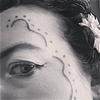Take a photo of a barcode or cover
challenging
emotional
reflective
sad
tense
medium-paced
Plot or Character Driven:
Character
Strong character development:
Yes
Loveable characters:
Yes
Diverse cast of characters:
Yes
Flaws of characters a main focus:
Yes
An absolutely amazing, all-encompassing book. The characters are so vivid and realistic. The prose is beautiful. I particularly liked how much attention is called to the fact that so much of memory is fiction, or at least not the entire truth. It's really hard to capture an entire life, from childhood to late adulthood, but Margaret Laurence has done so in a brilliant and entertaining way. It's the first Canadian novel that I've read that has truly felt Canadian to me - how the winters are, how we feel about our hometowns, how we never really feel like we belong anywhere, the connections to the landscape, everything. It captured how it is to be a writer perfectly. There is almost nothing I didn't like about this book. (I say almost because I was a bit frustrated with the student-professor love affair trope and I thought Brooke was perhaps a bit unrealistic - but in hindsight I think this was done just to show the immaturity of Morag at the time and perhaps develop her character more. I just wish that writers would develop their university student characters in ways other than "romance gone wrong.")
This book was like a revelation. I inhaled it. We were assigned to read it in high school and I couldn't get through it, but at forty it was amazing.
"The culmination and completion of Margaret Laurence's celebrated Manawaka cycle, The Diviners is an epic novel. This is a powerful story of an independent woman who refuses to abandon her search for love. For Morag Gunn, growing up in a small Canadian prairie town is a toughening process - putting distance between herself and a world that wanted no part of her. But in time, the aloneness that had once been forced upon her becomes a precious right - relinquished only in her overwhelming need for love. Again and again, Morag is forced to test her strength against the world - and finally achieves the life she had determined would be hers."
This book took me a LONG time to get into at all. I considered many times putting it aside because the first part of it was so unbelievably boring. I decided to tough it out though, and eventually, it did start to hold at least some of my interest. I still didn't much care for the writing style, with the bouncing between present and flashbacks, but it was OK, I suppose. I don't really have much else to say about it, though. I read it, but it didn't enthrall me. Time to move on.
OK, I lied. I do have one other thing to say about this book. While the fact remains that I wasn't overly enamored with the way it was written, I can appreciate why it was considered such an important book when it was written. Morag is a woman who decides to have a baby, and decides to have it alone. She's just left her husband, and has no intention of either staying with the father she chooses for the baby or finding some other understanding man who will be a father to her child. She deliberately makes herself a single mother. Nowadays, there's nothing really shocking, or even particularly interesting, about that, but when it was written? Pretty much the only reason to be a single mother would be if your husband had died. And if you got pregnant out of wedlock, you certainly didn't keep the baby. Either you aborted in a dark corner with a coat hanger, or you went away somewhere, had the baby, and had it adopted. The idea of keeping it, raising it yourself, and making no apologies for the fact that its father has little or no place in your life? Unheard of. Unheard of to the point where Margaret Laurence apparently got death threats after publishing this book. People were so appalled by her wanton disregard for the family and all that, and it was just generally a big deal.
Plus, let's not forget that in addition to deliberately becoming a single mother, the father she chose for her child was a Métis - a halfbreed, to many of the people then. So really, the whole damn thing was just a giant scandal. So for that reason, I can see why it was important. Although I think we've moved past the *intense* taboos surrounding this stuff, so I'm not sure I would really still consider it all that important. Anyway.
This book took me a LONG time to get into at all. I considered many times putting it aside because the first part of it was so unbelievably boring. I decided to tough it out though, and eventually, it did start to hold at least some of my interest. I still didn't much care for the writing style, with the bouncing between present and flashbacks, but it was OK, I suppose. I don't really have much else to say about it, though. I read it, but it didn't enthrall me. Time to move on.
OK, I lied. I do have one other thing to say about this book. While the fact remains that I wasn't overly enamored with the way it was written, I can appreciate why it was considered such an important book when it was written. Morag is a woman who decides to have a baby, and decides to have it alone. She's just left her husband, and has no intention of either staying with the father she chooses for the baby or finding some other understanding man who will be a father to her child. She deliberately makes herself a single mother. Nowadays, there's nothing really shocking, or even particularly interesting, about that, but when it was written? Pretty much the only reason to be a single mother would be if your husband had died. And if you got pregnant out of wedlock, you certainly didn't keep the baby. Either you aborted in a dark corner with a coat hanger, or you went away somewhere, had the baby, and had it adopted. The idea of keeping it, raising it yourself, and making no apologies for the fact that its father has little or no place in your life? Unheard of. Unheard of to the point where Margaret Laurence apparently got death threats after publishing this book. People were so appalled by her wanton disregard for the family and all that, and it was just generally a big deal.
Plus, let's not forget that in addition to deliberately becoming a single mother, the father she chose for her child was a Métis - a halfbreed, to many of the people then. So really, the whole damn thing was just a giant scandal. So for that reason, I can see why it was important. Although I think we've moved past the *intense* taboos surrounding this stuff, so I'm not sure I would really still consider it all that important. Anyway.
I have not read a great deal of Margaret Laurence's work, but love her prose style, and the intricate, intimate portraits of Canadian women which she presents. The Diviners, considered to be the final book in Laurence's Manawaka series, sounded exactly like my cup of tea. However, I found myself enjoying it nowhere near as much as The Stone Angel, which is an exquisite novel. This is certainly a readable book, but due to the way it is structured, it felt a little disjointed, and I was less interested in the protagonist than I anticipated I would be at the outset.
reflective
sad
slow-paced
Strong character development:
Yes
Loveable characters:
Yes
Diverse cast of characters:
Yes
Flaws of characters a main focus:
Yes
Gorgeous book.
This was not my favourite book. In fact, about a quarter of the way in, I gave up on reading it, and went to read a synopsis instead (so I would have an idea of what people were talking about at book club). When I read the synopsis, I realized that I *really wanted* to get to the end organically. Even though I'd "spoiled" the ending, it seemed like a story worth living through.
Part of what I hated in the beginning was the disconnect between Morag and those around her. She seemed so awkward, and it felt like she was doing this intentionally. I couldn't understand why she was so internally awful to Christie and Prin. They seemed like good people, and she seemed ungrateful. Her relationship with Jules was stilted, which seemed a little more reasonable, being young love and all. I despised her relationship with her husband.
It wasn't until after she left Brooke and started preparing for Pique that I started to understand Morag. And it was around this time that I really started enjoying the book.
It was definitely a story worth living through.
Part of what I hated in the beginning was the disconnect between Morag and those around her. She seemed so awkward, and it felt like she was doing this intentionally. I couldn't understand why she was so internally awful to Christie and Prin. They seemed like good people, and she seemed ungrateful. Her relationship with Jules was stilted, which seemed a little more reasonable, being young love and all. I despised her relationship with her husband.
It wasn't until after she left Brooke and started preparing for Pique that I started to understand Morag. And it was around this time that I really started enjoying the book.
It was definitely a story worth living through.
I was really engrossed by the storytelling methods used in this novel. The author strung together words in a way that made me re-think the true meanings of the words. It wasn't necessarily a happy story, but one with much depth and soul-searching. Whereas I can't really relate to any of the characters, I still felt for them and their struggles.





